Search Images
Browse Content (p. 165)

Image
Second-Wave Civilization Natural Resources and Trade
A map illustrating the rise and spread of the Second Wave Civilizations between c. 500 BCE and 200 CE (including the Persians, the Greeks, the Romans, the Chinese, and India) with the flows of trade in major goods and resources.
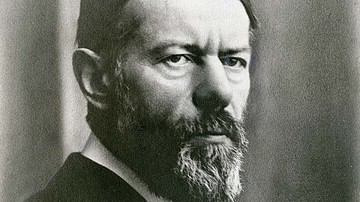
Image
Max Weber
Max Weber (l. 1874-1920), German sociologist, photo by Ernst Gottmann, 1918.
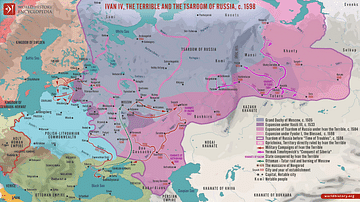
Image
Ivan IV, the Terrible and the Tsardom of Russia, c. 1598
A map illustrating the rise and expansion of the Tsardom of Russia under the rule of Ivan IV Vasilyevich (commonly known as The Terrible, from the Russian “grozny“(грозный), Fearsome or Awe-inspiring). Originally a Grand Prince of Moscow...
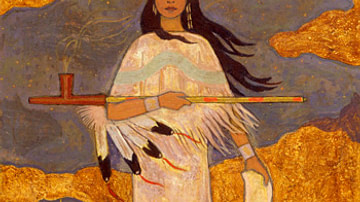
Image
Apparition of the Buffalo Calf Maiden
Detail from the Apparition of the Buffalo Calf Maiden, painting by Frithjof Schuon, 1959.
Image reproduction from the book Images of Primordial and Mystic Beauty: Paintings by Frithjof Schuon (World Wisdom 2003).
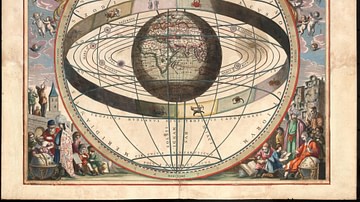
Image
Ptolemaic Universe
A 17th-century map by Jan van Loon of the cosmos as proposed by the astronomer and geographer Claudius Ptolemy (c. 100 - c. 170 CE).
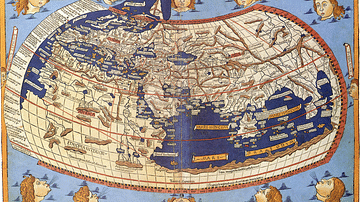
Image
Ptolemy's Map of the World
The map of the world created by the astronomer and geographer Claudius Ptolemy (c. 100 - c. 170 CE). From a 15th-century book by Leinhart Holle. Made by the German cartographer Donnus Nicholas Germanus.

Image
Claudius Ptolemy Portrait
A 15th-century portrait of the astronomer and geographer Claudius Ptolemy (c. 100 - c. 170 CE) attributed to Justus van Gent or Pedro Berruguete. (Louvre Museum, Paris)
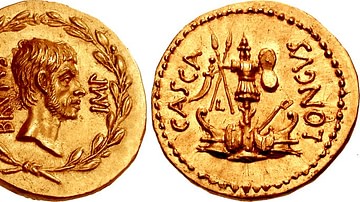
Image
Gold Coin of Brutus
Aureus of Brutus, thought to have been struck in the late summer or autumn of 42 BCE at a military mint travelling with Marcus Junius Brutus and Cassius in western Asia Minor or northern Greece. Obverse: portrait of Brutus...
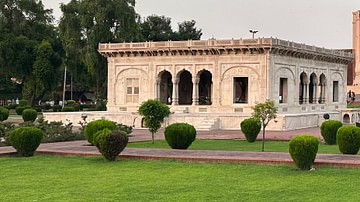
Image
Baradari
Hazuri Bagh Baradari (formerly known as Ranjit Singh's Baradari), built by Sikh ruler Maharaja Ranjit Singh in 1818, in Lahore, Pakistan. In Urdu, bara means "twelve," and dar means "door." Thus, baradari is the name given to a building...
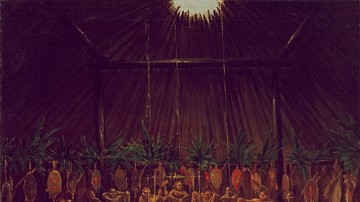
Image
Medicine Lodge, Mandan O-kee-pa Ceremony
Interior View of the Medicine Lodge, Mandan O‑kee-pa Ceremony, oil on canvas by George Catlin, 1832.
Smithsonian American Art Museum